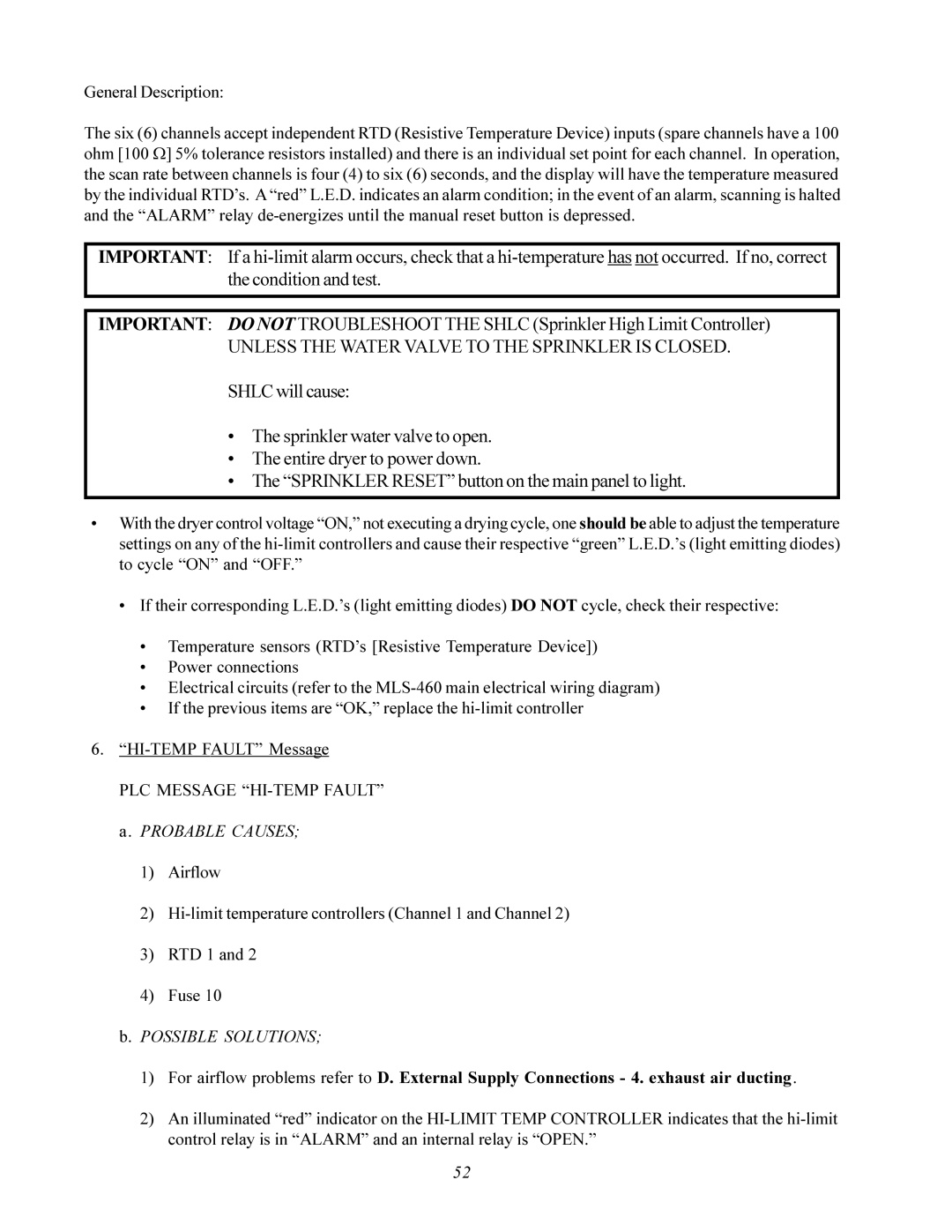
General Description:
The six (6) channels accept independent RTD (Resistive Temperature Device) inputs (spare channels have a 100 ohm [100 W] 5% tolerance resistors installed) and there is an individual set point for each channel. In operation, the scan rate between channels is four (4) to six (6) seconds, and the display will have the temperature measured by the individual RTD’s. A “red” L.E.D. indicates an alarm condition; in the event of an alarm, scanning is halted and the “ALARM” relay
IMPORTANT: If a
IMPORTANT: DO NOT TROUBLESHOOT THE SHLC (Sprinkler High Limit Controller)
UNLESS THE WATER VALVE TO THE SPRINKLER IS CLOSED.
SHLC will cause:
•The sprinkler water valve to open.
•The entire dryer to power down.
•The “SPRINKLER RESET” button on the main panel to light.
•With the dryer control voltage “ON,” not executing a drying cycle, one should be able to adjust the temperature settings on any of the
•If their corresponding L.E.D.’s (light emitting diodes) DO NOT cycle, check their respective:
•Temperature sensors (RTD’s [Resistive Temperature Device])
•Power connections
•Electrical circuits (refer to the
•If the previous items are “OK,” replace the
6.
PLC MESSAGE “HI-TEMP FAULT”
a.PROBABLE CAUSES;
1)Airflow
2)
3)RTD 1 and 2
4)Fuse 10
b.POSSIBLE SOLUTIONS;
1)For airflow problems refer to D. External Supply Connections - 4. exhaust air ducting.
2)An illuminated “red” indicator on the
52
